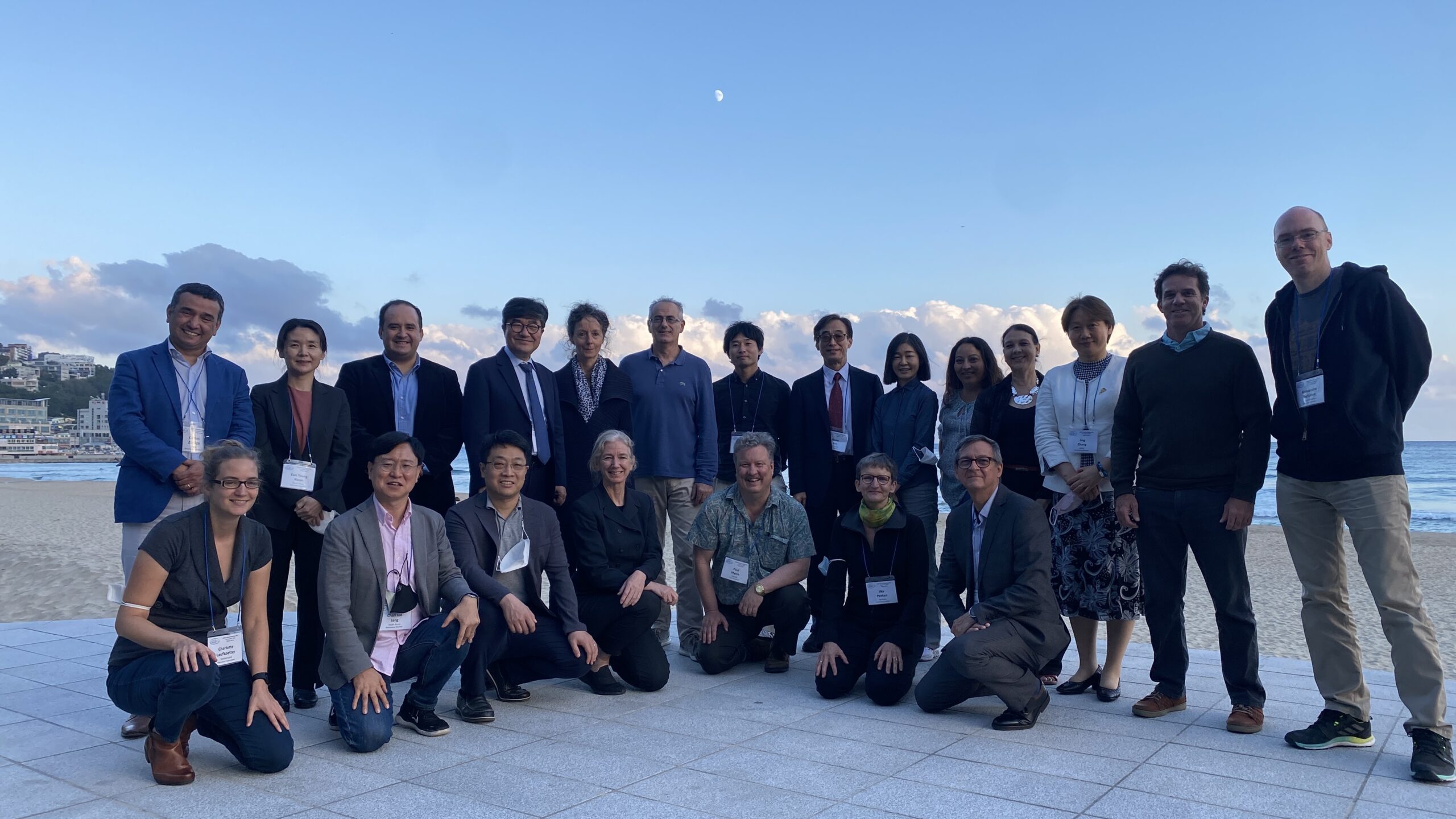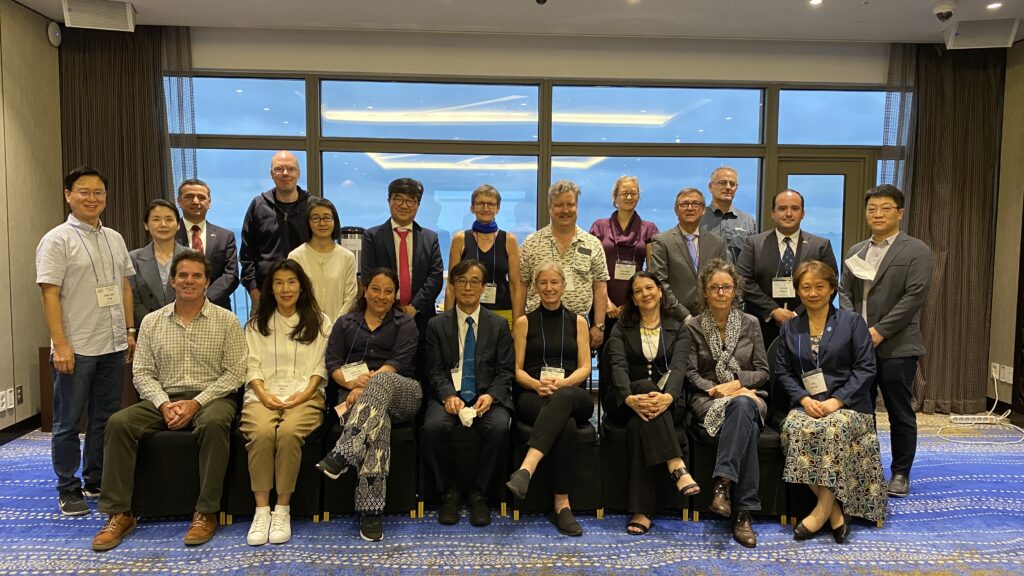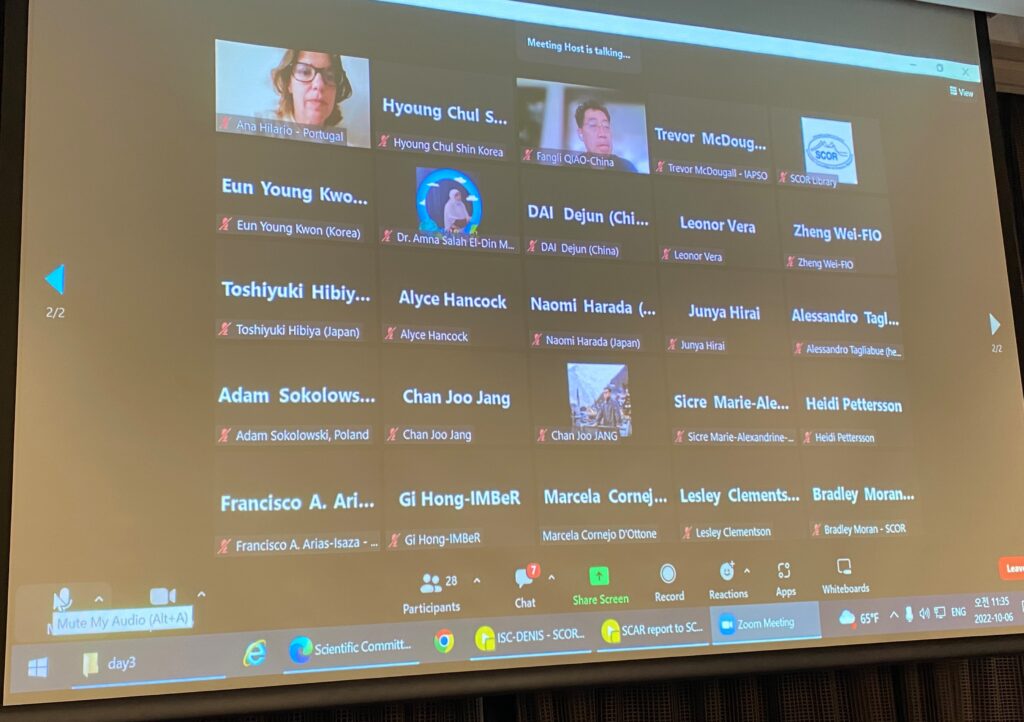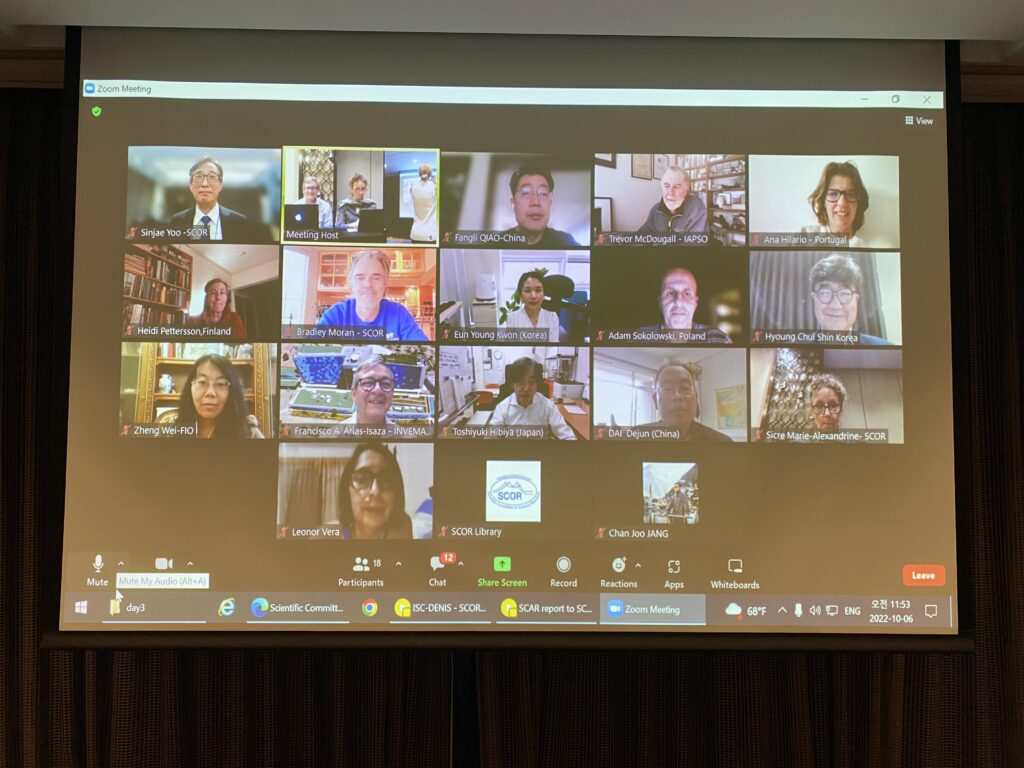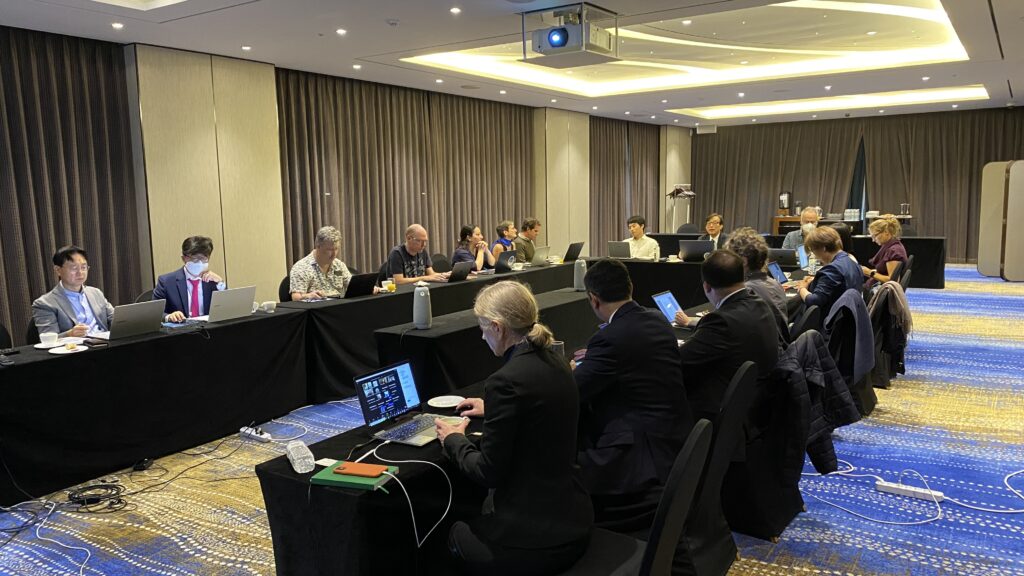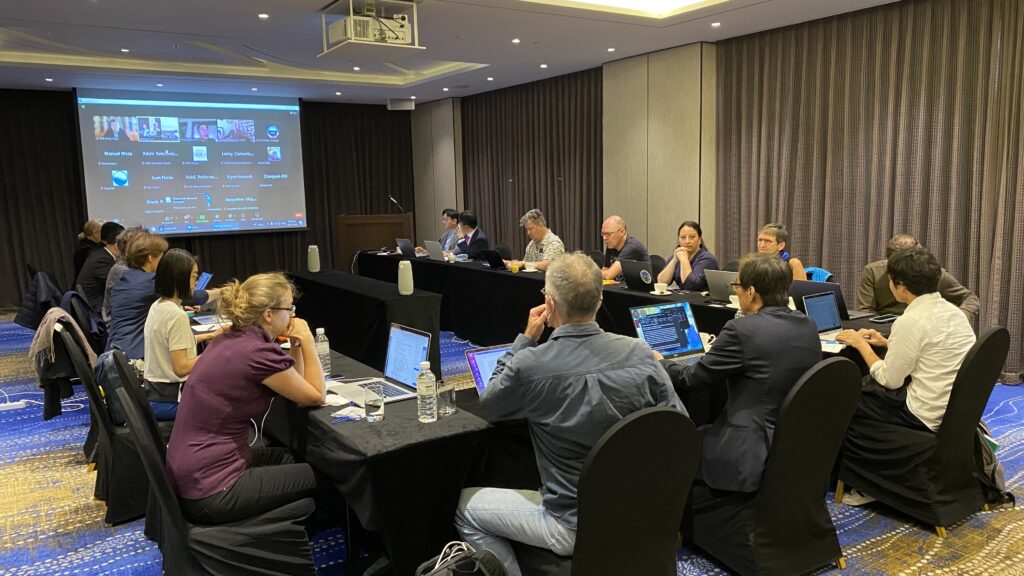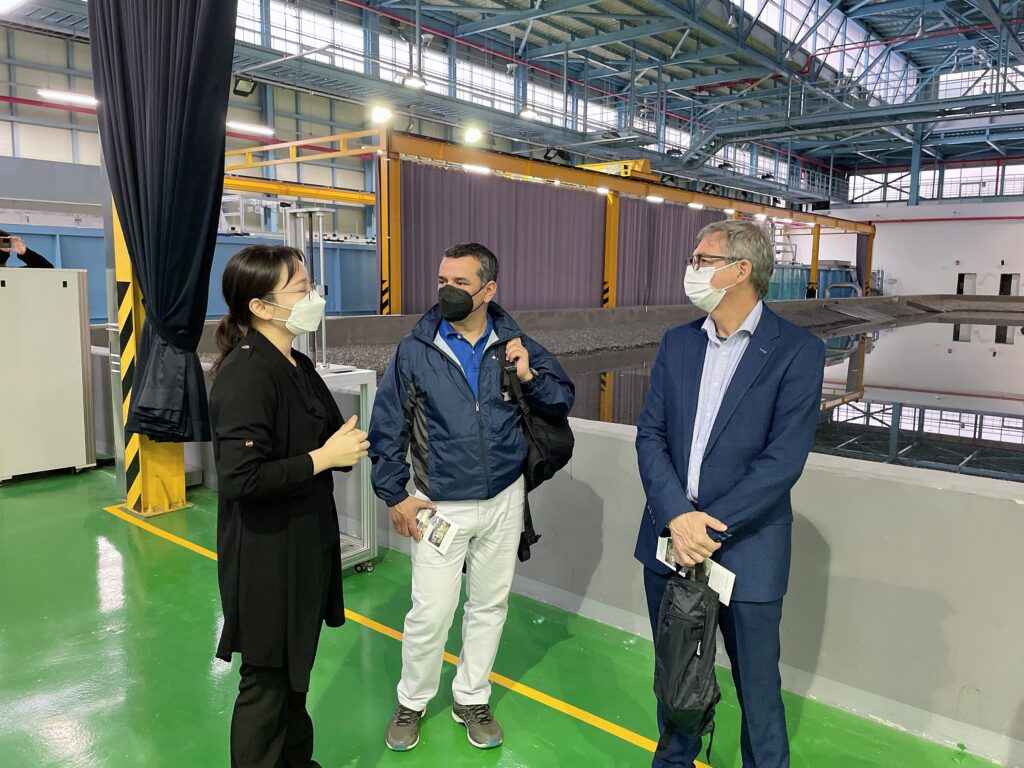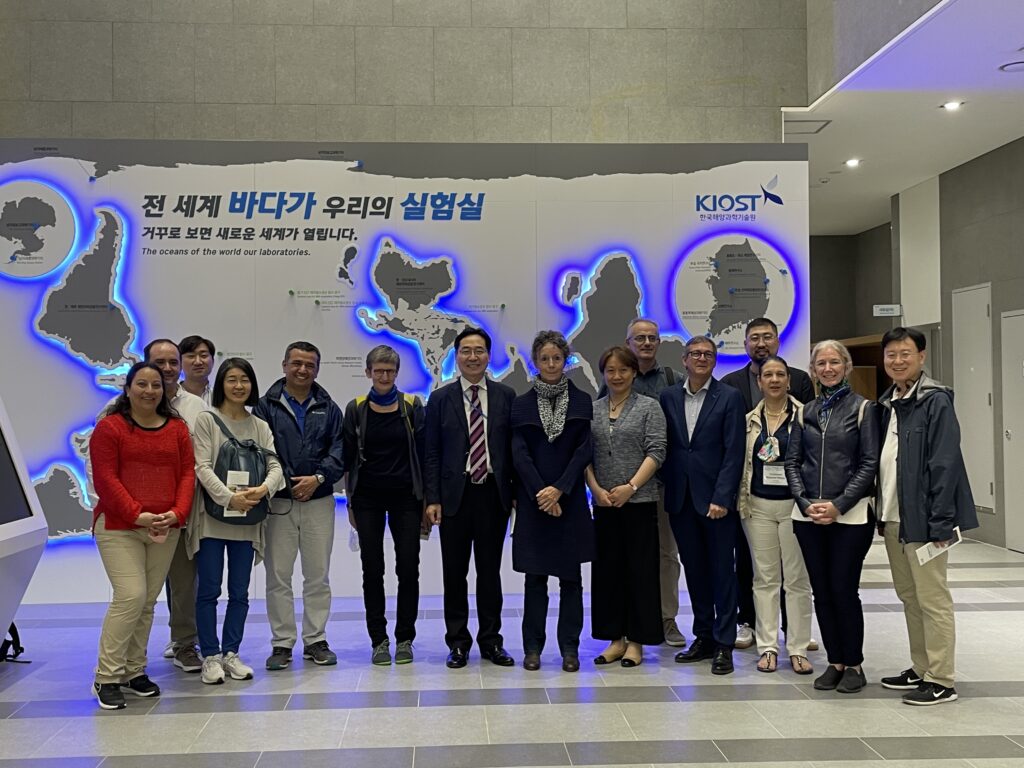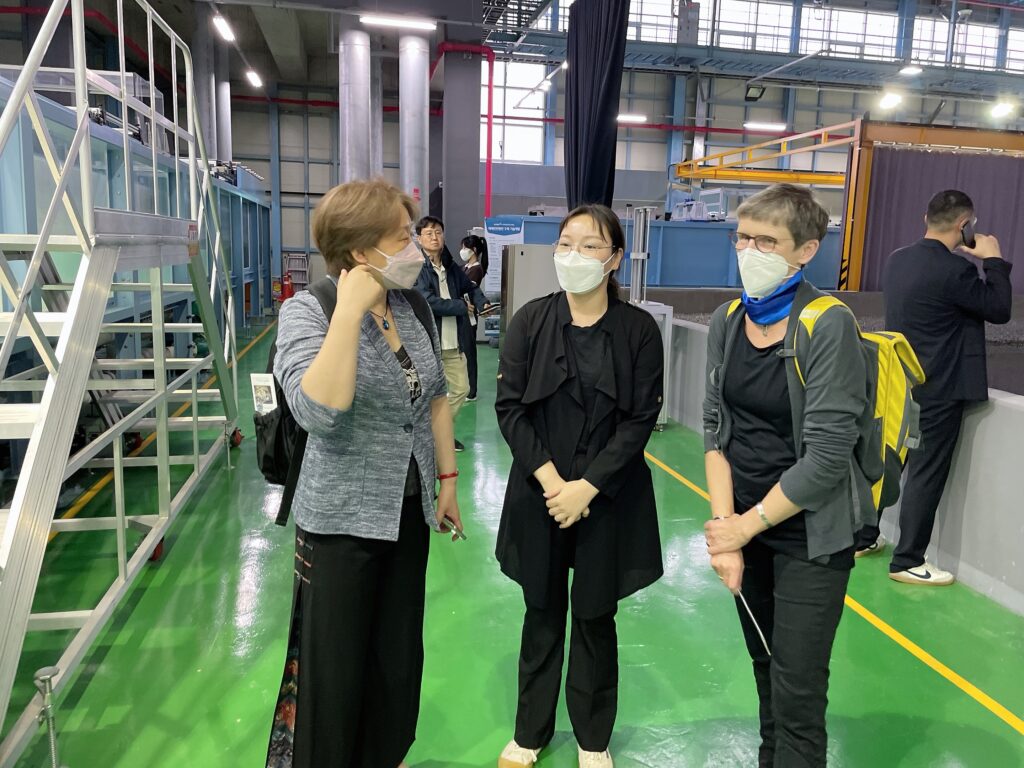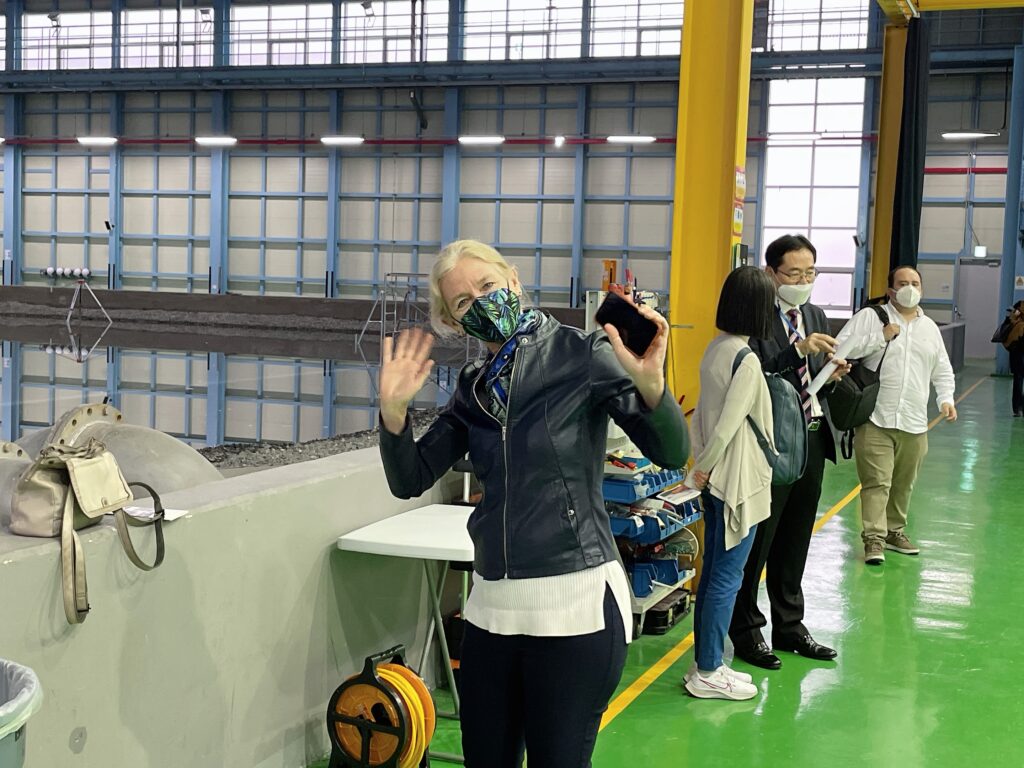Busan, Korea
IMPORTANT UPDATE: The COVID PCR test on arrival will no longer be required starting the 1 of October.
ANNOTATED AGENDA (with summaries) – updated 28 September 2022
Venue: Korea Institute of Ocean Science and Technology (KIOST) + HYBRID mode
The closed Executive Committee meeting will take place on Monday 3 of October (am) and Thursday 6 of October (pm)
Pre-event: Joint symposium organized by SCOR, PICES and KIOST
Developing better capacity for Early Career Ocean Professionals (ECOPs)
More information here
Registration to SCOR 2022 Annual Meeting
Please register HERE
Logistical Information
Dates: 4-6 October 2022
Time: 9:00 am to 5 pm (KST) / +9 (GMT)
Meeting mode: hybrid – Zoom links to be provided to remote participants
Logistics document: IMPORTANT UPDATES (15 September 2022)
Events
3 October 2022. Pre-event: Joint Early Career Symposium organized by SCOR, PICES, and KIOST
4 October 2022. Day 1: Opening, discussion of new WG proposals
5 October 2022. Day 2: Reports/updates from current SCOR Working Groups and research projects
6 October 2022. Day 3: Reports/updates from infrastructural projects, affiliated organizations and capacity development activities, closing of meeting. Visit to KIOST
Review of WG Proposals
2022 Call for Working Group Proposals
Seven SCOR working group proposals were submitted for consideration for the 2022 SCOR Call for proposals. The proposals are linked below in Tab 2.1.
Instructions for reviewing the proposals are available here. We welcome reviews from national SCOR committees, partner organizations, and individuals.
The review template in editable format can be found here.
Background Information and content for Meeting
Tab 0. Agenda and Participants List
0.1. Agenda [Block and Annotated Agenda]
0.2. Participants [List]
DAY 1: 4 October 2022
Tab 1 – Opening topics
1.1. In Memoriam – Obituary for scientists involved with SCOR [Obituaries][Slides]
1.2. Report of the SCOR President [Report]
1.3. Report of SCOR Executive Director [Report][Slides]
1.4. Elections of SCOR Executive Committee Officers [2022-2024 slate]
1.5. Report of the 2022 ad hoc Finance Committee: Composed by Peter Croot (Ireland), Heidi Pettersson (Finland), Fatima Abrantes (Portugal), and Brett Moloney (Australia).
Tab 2 – Working Groups
Tab 2.1. New Working Group proposals
2.1.1. Towards best practices for Measuring and Archiving Stable Isotopes in Seawater (MASIS) [Proposal]
2.1.2. Developing resources for the study of Methylated Sulfur compound cycling PROcesses in the ocean (DMS-PRO) [Proposal]
2.1.3. Foraminifera in Extreme and Rapidly Changing Environments (FIERCE) [Proposal]
2.1.4. Reducing Uncertainty in Soluble aerosol Trace Element Deposition (RUSTED) [Proposal]
2.1.5. DEveloping Repositories for carbon FLUX quantification: Th-234 as a case study (DEPOFLUX) [Proposal]
2.1.6. DYNamic Approaches for assessing Marine biota responses to fluctuating Oceans (DYNAMO) [Proposal]
2.1.7. Impact of biotoxins on marine apex predators in Upwelling Systems (ToxMAP) [Proposal]
Tab 5 – Affiliated and Non-governmental Organizations (Part 1)
Affiliated organizations reports
5.4. IABO – International Association for Biological Oceanography [Report][Slides]
5.5. IAPSO – International Association for the Physical Sciences of the Oceans [Report]
5.6. IAMAS – International Association of Meteorology and Atmospheric Sciences [Report][Slides][Video]
Tab 6 – Intergovernmental and partner Organizations (Part 1)
Intergovernmental organizations reports
6.1. IOC – Intergovernmental Oceanographic Commission [Report][Slides]
Partner organizations reports
6.4. POGO – Partnership for Observation of the Global Oceans [Report][Video]
Group Dinner
DAY 2: 5 October 2022
Tab 2.2. Working Groups Reports
2.2.1. WG#143. Dissolved N2O and CH4 measurements: Working towards a global network of ocean time series measurements of N2O and CH4 [Report][Slides]
2.2.2. WG#145. Modelling Chemical Speciation in Seawater to Meet 21st Century Needs (MARCHEMSPEC) [Report][Slides]
2.2.3. WG#148. International Quality Controlled Ocean Database: Subsurface temperature profiles (IQuOD) [Report][Slides]
2.2.4. WG#150. Translation of Optical Measurements into particle Content, Aggregation & Transfer (TOMCAT) [Report][Slides]
2.2.5. WG#151. Iron Model Intercomparison Project (FeMIP) [Report][Slides]
2.2.6. WG#152. Measuring Essential Climate Variables in Sea Ice (ECV-Ice) [Report][Slides][Video]
2.2.7. WG#153. Floating Litter and its Oceanic TranSport Analysis and Modelling (FLOTSAM) [Report][Slides]
2.2.8. WG#154. Integration of Plankton-Observing Sensor Systems to Existing Global Sampling Programs (P-OBS) [Report][Video]
2.2.9. WG#155. Eastern boundary upwelling systems (EBUS): diversity, coupled dynamics and sensitivity to climate change [Report][Slides]
2.2.10. WG#156. Active Chlorophyll fluorescence for autonomous measurements of global marine primary productivity [Report]
2.2.11. WG#157. Toward a new global view of marine zooplankton biodiversity based on DNA metabarcoding and reference DNA sequence databases (MetaZooGene) [Report][Slides][Video]
2.2.12. WG#158. Coordinated Global Research Assessment of Seagrass System (C-GRASS) [Report][Slides]
2.2.13. WG#159. Roadmap for a Standardised Global Approach to Deep-Sea Biology for the Decade of Ocean Science for Sustainable Development (DeepSeaDecade) [Report][Slides]
2.2.14. WG# 160. Analysing ocean turbulence observations to quantify mixing (ATOMIX) [Report][Slides]
2.2.15. WG# 161. Respiration in the Mesopelagic Ocean (ReMO): Reconciling ecological, biogeochemical and model estimates [Report][Slides]
2.2.16. WG# 162. Developing an Observing Air-Sea Interactions Strategy (OASIS) [Report][Slides]
2.2.17. WG# 163. Coupling of ocean-ice-atmosphere processes: from sea-Ice biogeochemistry to aerosols and Clouds (CIce2Clouds) [Report][Slides]
2.2.18. WG# 164. CoNCENSUS: Advancing standardisation of COastal and Nearshore demersal fish visual CENSUS techniques [Report][Slides]
2.2.19. WG# 165. Mixotrophy in the Oceans – Novel Experimental designs and Tools for a new trophic paradigm (MixONET) [Report][Slides]
Tab 3 – Large-Scale Ocean Research Projects reports
3.1. GEOTRACES – Marine Biogeochemical Cycles of Trace Elements and Isotopes [Report] [Annex – Regional reports][Slides]
3.2. SOLAS – Surface Ocean – Lower Atmosphere Study [Report][Slides]
3.3. IMBeR – Integrated Marine Biosphere Research [Report][Slides]
3.4. IQOE – International Quiet Ocean Experiment [Report] [Ocean Sound Workshop Report][Slides]
3.5. IIOE-2 – International Indian Ocean Expedition 2 [Report]
Tab 4 – Infrastructural Projects reports
4.1. SOOS – Southern Ocean Observing System [Report][Video]
4.2. IOCCP – International Ocean Carbon Coordination Project [Report][Slides]
4.3. COBS – Changing Ocean Biological Systems [Report][Slides]
4.4. GlobalHAB – Global Harmful Algal Blooms [Report][Slides]
4.5. JCS – Joint Committee on Seawater (IAPWS/SCOR/IAPSO) [Report][Slides]
DAY 3: 6 October 2022
Tab 5 – Affiliated projects and Non-governmental Organizations (Part 2)
Affiliated projects reports
5.1. IOCCG – International Ocean Colour Co-ordinating Group [Report][Slides][Video]
5.2. InterRidge – International RIDGE Studies [News]
5.3. GACS – Global Alliance of Continuous Plankton Recorders (no updates received)
Affiliated organizations reports
IABO, IAMAS and IAPSO report on Day 1
Tab 6 – Intergovernmental and partner Organizations
Intergovernmental organizations reports
6.2. PICES – North Pacific Marine Science Organization [Report][Slides][Video]
6.3. GESAMP WG 38– The atmospheric input of chemicals to the oceans [Report][Slides]
Partner organizations reports
6.5. ISC – International Science Council [ISC Annual Report][Video]
6.6. SCAR – Scientific Committee on Antarctic Research [Report][Video]
6.7. Future Earth and the Ocean Knowledge Action Network [Report][Slides]
6.8. WCRP – World Climate Research Programme / CLIVAR [Report][Slides]
Tab 7 – Capacity-Development Activities
SCOR compiled capacity development activities (SCOR Visiting Scholars, POGO-SCOR Fellowships, NSF travel support for developing countries, and others) [Report][Slides]
POGO-SCOR Fellowship Programme [Report]
Regional Graduate Networks in Oceanography (RGNO) [Report]
